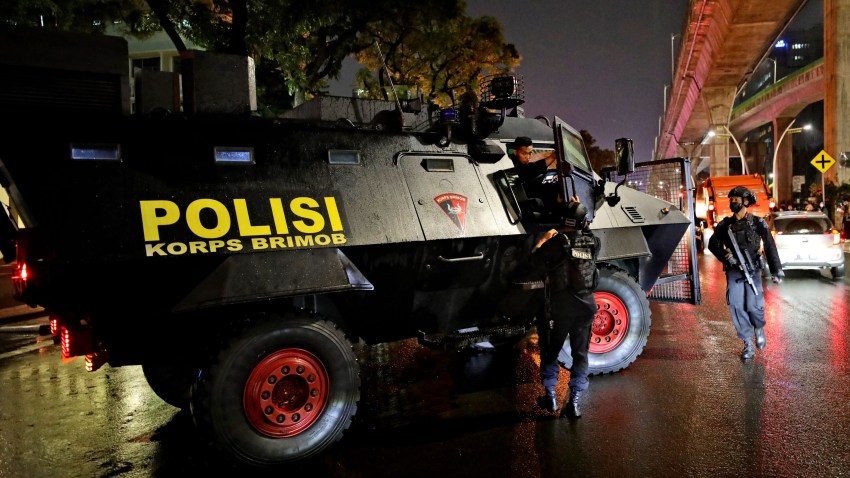On April 12, officers from Indonesia’s elite police counterterrorism unit, Densus 88, engaged in a shootout with Islamist militants during a targeted raid on a property in Lampung, at the southern tip of Sumatra. Two militants were killed, with authorities later identifying them as members of Jemaah Islamiyah, the group notorious for carrying out the 2002 Bali bombings but which has been dormant for much of the past 15 years. Four other members of Jemaah Islamiyah had been arrested in Lampung the previous day, with police seizing an assault rifle, homemade firearms and machetes.
Indonesian authorities said the raids in Lampung formed part of a broader crackdown on Jemaah Islamiyah, amid reports that it is recruiting and training new members. After committing a string of further atrocities in the years following the Bali attacks, targeting hotels and foreign embassies in Jakarta, Jemaah Islamiyah was declared an illegal organization by an Indonesian court in 2008. The following year, the group renounced jihad as the primary means to achieve its aims and began portraying itself as a harmless social organization. Yet Jemaah Islamiyah has never dropped its aim of forging a Shariah-ruled caliphate in Indonesia, stoking fears that it could one day return to violence.
Jemaah Islamiyah is not the only group that poses a threat. In December, a suicide bomber linked to Jamaah Ansharut Daulah, or JAD, blew himself up at a police station in Bandung, in West Java, killing a police officer and leaving seven other people wounded. JAD, which is affiliated with the Islamic State, comprises a shadowy network of cells that have been responsible for a series of similar bombings since 2016, with churches and shopping malls among the targets.

